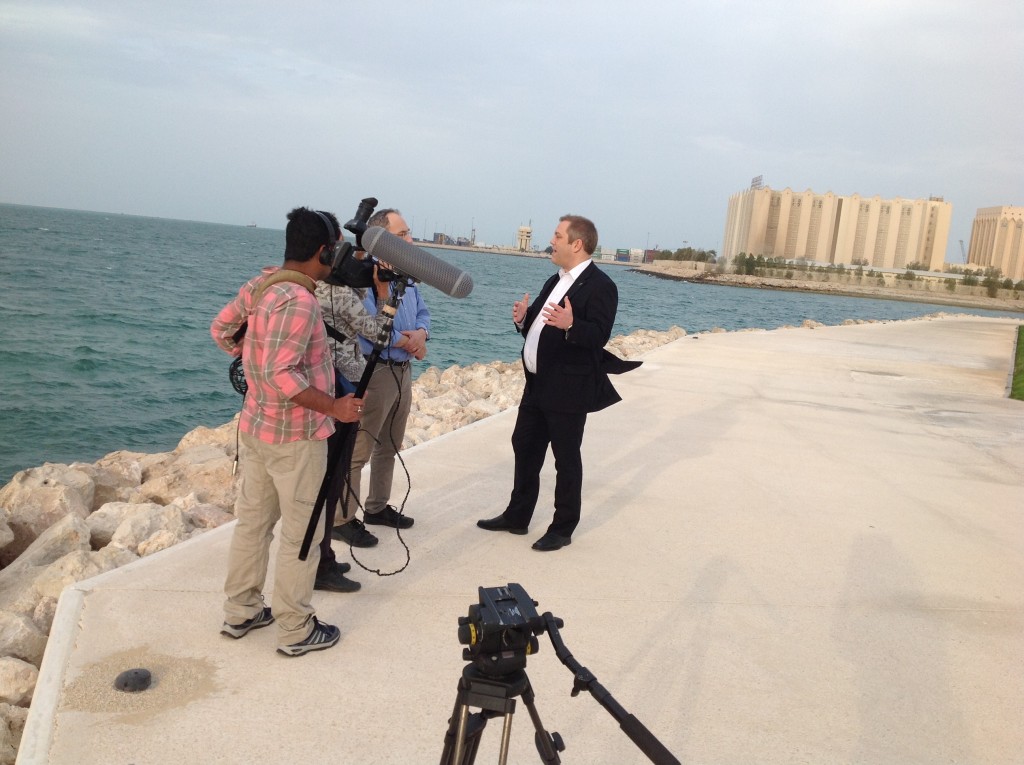The US news program PBS NewsHour has featured the Sahara Forest Project in their special project ‘Food for 9 Billion’. The series travels the world in search of stories that are at the center of the challenges of feeding a planet that will reach a population of 9 billion by 2050.
Watch Could Agriculture Bloom in the Desert? on PBS. See more from PBS NewsHour.
The film is produced by the Center for Investigative Reporting with help from Qatar TV as part of the “Food for 9 Billion”http://cironline.org/projects/food-9-billion http://www.pbs.org/newshour/ project and broadcast on the US public television program PBS NewsHour.
The Sahara Forest Project pilot facility is visited by Jon Miller, special correspondent for the series ‘Food for 9 Billion’. Miller reports from Qatar on inventive ways to get the most out of water in the desert. The episode is called ‘Could Agriculture Bloom in the Desert? Qatar Works to Invent an Innovative Oasis’.
‘A laboratory for solving problems’
“Already, 99 percent of the water people (in Qatar) use for farming, drinking, or swimming comes from the sea. It takes a huge amount of energy to remove the salt and a huge amount of money. For now, Qatar has both. But the country’s leaders know the oil and gas won’t last forever. So they’re taking a radical step, planning ahead, and not just for themselves. Worldwide, more than two billion people live in dry areas, where climate change poses an urgent threat to food, water, and energy supplies. Qatar’s leaders say they want their country to be a laboratory for solving those problems before it’s too late”, Miller says in the ‘Food for 9 billion’ program.
Media partnership
The special project ‘Food for 9 Billion’ is a two-year project spearheaded by The Center for Investigative Reporting and Homelands Productions, with broadcast partners PBS NewsHour, American Public Media’s Marketplace and PRI’s The World. The partnership has produced more than 24 radio and 12 video stories about the challenges of feeding a planet that will reach a population of 9 billion by 2050. The series consists of radio and TV features, video documentary, and interactive web elements examining the challenge of feeding the world at a time of rapid social and environmental change.
From China to Qatar, Egypt to Costa Rica, the ‘Food for 9 billion’ reporters have searched for the individuals and communities that are grappling with ways to make our global food system more sustainable, just and productive. Some of the solutions and experiments are technologically complex, some intuitively simple and small-scale, and others controversial and unproven.

